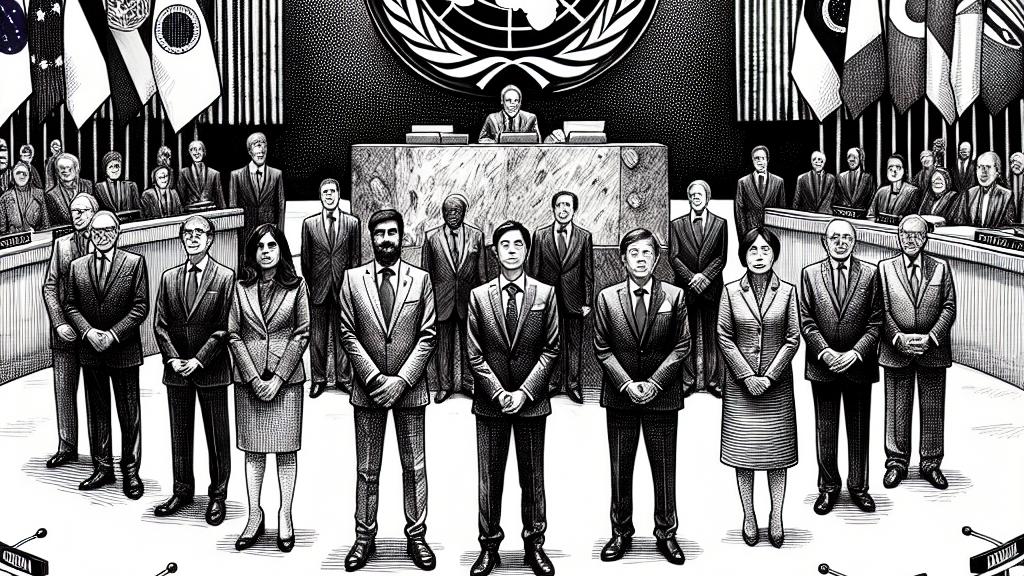G4 Calls for Urgent UNSC Reform Ahead of UN's 80th Anniversary
Overview
- The G4 nations—India, Brazil, Germany, and Japan—are advocating for critical UNSC reforms.
- Their urgent appeal aligns with the UN's impending 80th anniversary celebration.
- The current structure of the UNSC is deemed inadequate in reflecting today's global diversity.

A Historic Moment for Reform
As we approach the monumental 80th anniversary of the United Nations in 2025, the demand for reforming the United Nations Security Council (UNSC) intensifies. The Group of Four (G4)—comprising India, Brazil, Germany, and Japan—asserted their commitment to this cause during a pivotal meeting on September 23, 2024, at the United Nations General Assembly in New York. They argued persuasively that the current UNSC, heavily skewed towards a few Western powers, does not adequately represent the complexities of our modern world. This isn’t just a theoretical concern; it’s a matter of practical governance. The inclusion of diverse perspectives is crucial for effective decision-making and international cooperation.
The Challenges We Face Together
In their joint statement, G4 ministers highlighted pressing global challenges that underline the need for reform. Current conflicts, especially in places like Ukraine and Gaza, have demonstrated how ineffective the UNSC can be in responding to crises when it lacks a broader representation. They emphasized that increasing both permanent and non-permanent memberships would ensure that underrepresented regions, particularly Africa and Latin America, have a strong voice in the decision-making processes. This call for a more inclusive council resonates with many nations, as evidenced by widespread support from various Member States, reflecting a collective yearning for a reformed UNSC that can truly address modern geopolitical complexities.
A Call to Action and Global Solidarity
The President of the General Assembly has voiced a strong warning about the dire consequences of inaction. He stressed that without proactive reforms, the UNSC risks becoming increasingly irrelevant and ineffective, ultimately jeopardizing global peace. The glaring inability of the Council to reach a consensus on critical issues, like the ongoing Israel-Palestine crisis, underscores the urgent need for change. Furthermore, various coalitions, including the Common African Position, have united in advocating for reforms, recognizing that progress hinges on representation and dialogue. The imperative is clear: as nations grapple with urgent global issues, we must embrace the call for a more equitable and effective UNSC, one that reflects the true diversity of its member states and their collective aspirations for peace.

Loading...